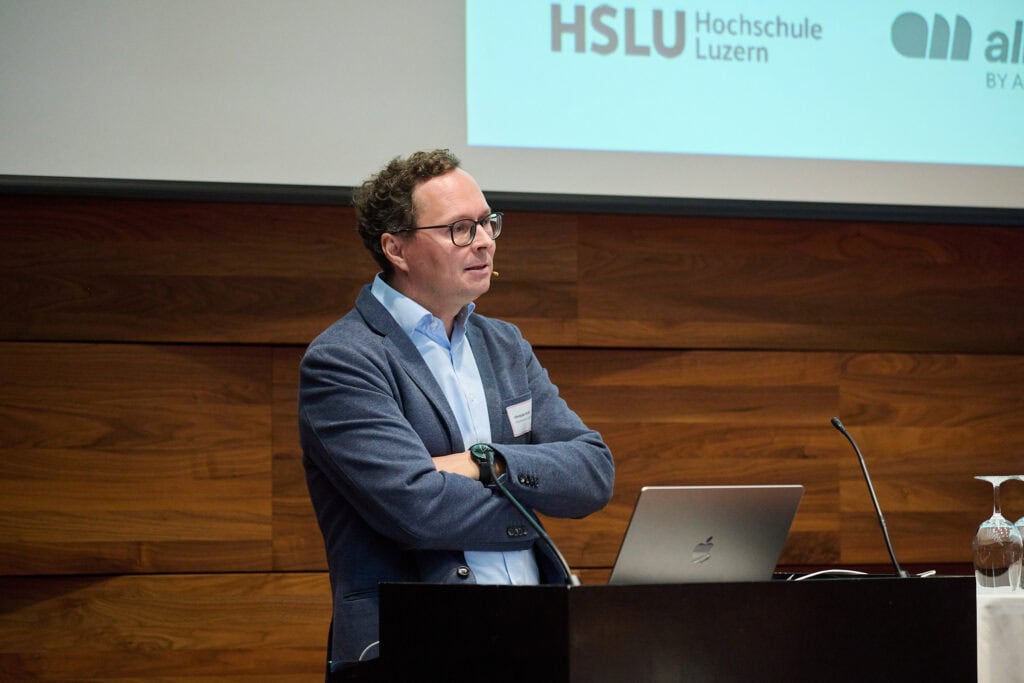Review of the 105th Swiss Real Estate Talk
Where is the regulation of the Swiss housing market leading? Are the consequences always the desired ones? And what can the real estate industry do to avoid appearing as an opponent of the common good? A high-ranking panel recently explored these questions in Zurich's "Metropol".

With prominent speakers from academia, the private sector and politics, the 105th edition of the "Swiss Real Estate Talks" focused on the connection between regulation and the shortage of housing. The list of market interventions with which politicians want to get to grips with the housing problem is likely to grow longer. Initiatives at both federal and cantonal level could lead to a rent cap, even an amendment to the constitution is being discussed, as well as the introduction of pre-emption rights and the tightening of the Lex Koller. In his opening statement, moderator Christian Kraft from Lucerne University of Applied Sciences and Arts showed that the existing regulation is partly responsible for the exorbitant rise in asking prices. There is also scientific evidence that "rent control" and the protection of existing tenants lead to more high-priced supply in the medium term - and to great inequality and pressure on the middle income classes in the long term.

"We are part of the solution"
Marcel Kucher, CFO and designated CEO of Swiss Prime Site, also referred to the counterproductive consequences of regulatory intervention on the market mechanism. On the other hand, he made it clear in his presentation that the real estate industry is open to clear rules and sees itself as part of the solution for more affordable living space. A regulation that he believes the sector could well live with: Building higher and denser in exchange for fixed quotas for affordable housing.

Interestingly, this and other suggestions made by Kucher were echoed in the presentation by Markus Bärtschiger, the mayor of Schlieren. To alleviate the housing shortage, the SP politician called for, among other things, a relaxation of noise protection, more efficient regulation of objections and the facilitation of conversions. Of course, Bärtschiger also had ideas in his luggage that point in a different direction: Taxing vacant apartments, for example, more state housing construction, and - last but not least - influencing rental prices. Regulation is unfortunately necessary, said Bärtschiger, and derived from the Federal Constitution the mandate to intervene in the housing market in favor of the weaker members of society. The preamble states that "the strength of the people is measured by the welfare of the weak."

"Chainsaw not the model for Switzerland"
IAZI founder and cantonal councillor Donato Sconamiglio also rejected one-sided market confidence. "The chainsaw is not the model for Switzerland," he said. After all, the high quality of location in this country is also linked to the high level of regulation, and the wealthier people in particular have no interest in the lower income groups not being able to find an apartment.

Another consensus that evening: the big real estate companies are not a good enemy. Public limited real estate companies own just 1% of rented apartments, and of the 2% of Swiss rental apartments owned by institutional investors, pension funds account for the lion's share. As is well known, these are not concerned with greed for maximum returns, but with retirement provision for broad sections of society. Better communication from the industry would therefore be appropriate. Kucher called on companies to do more for media visibility. However, it is also important that the power to compromise, which according to Bärtschiger used to be more pronounced, should grow again. In view of the social dimension of the housing issue, Christian Kraft concluded: "We have to move towards each other".





















